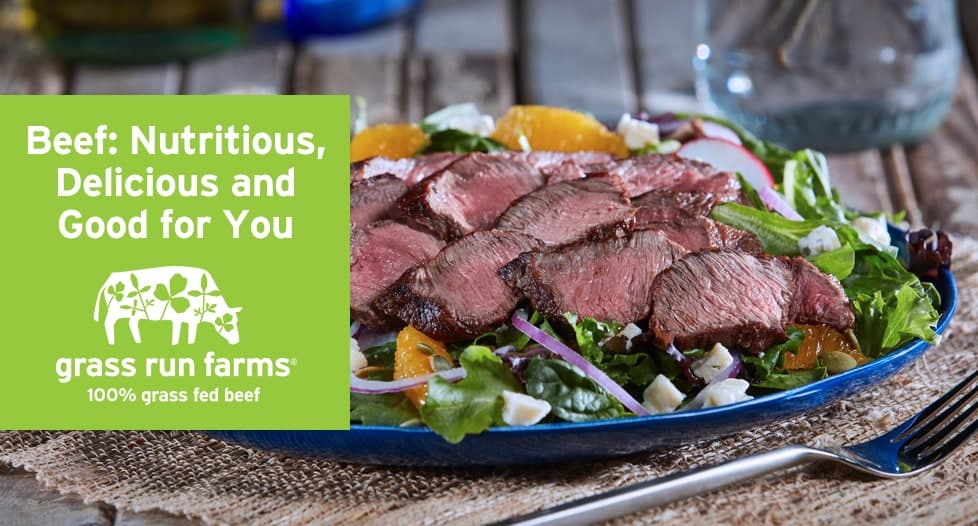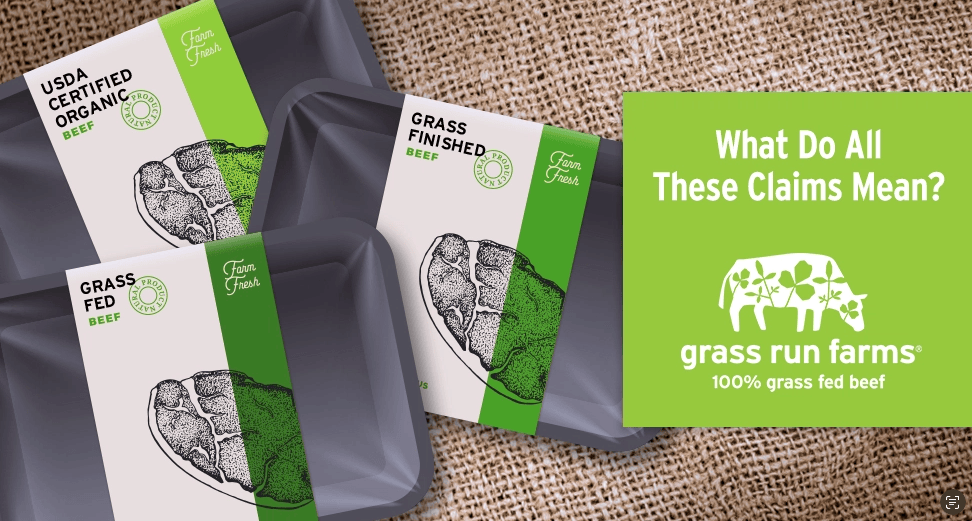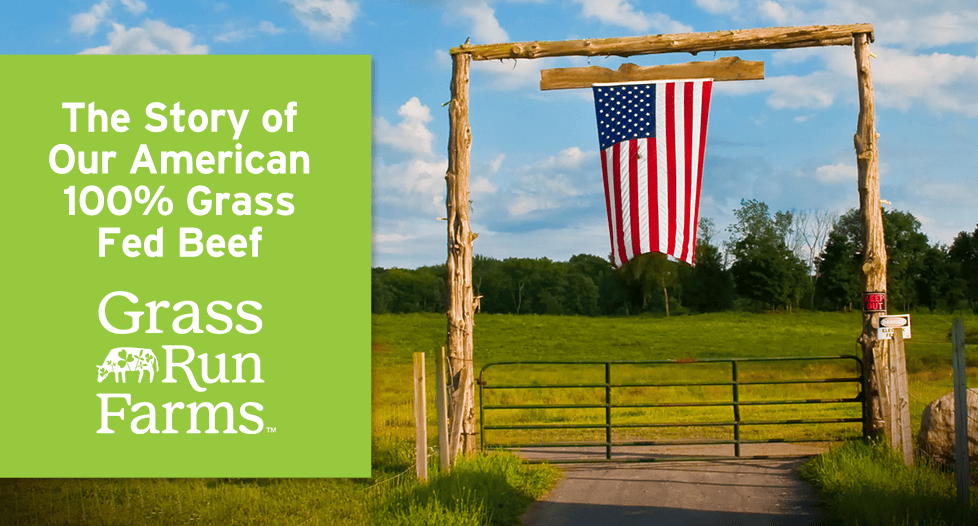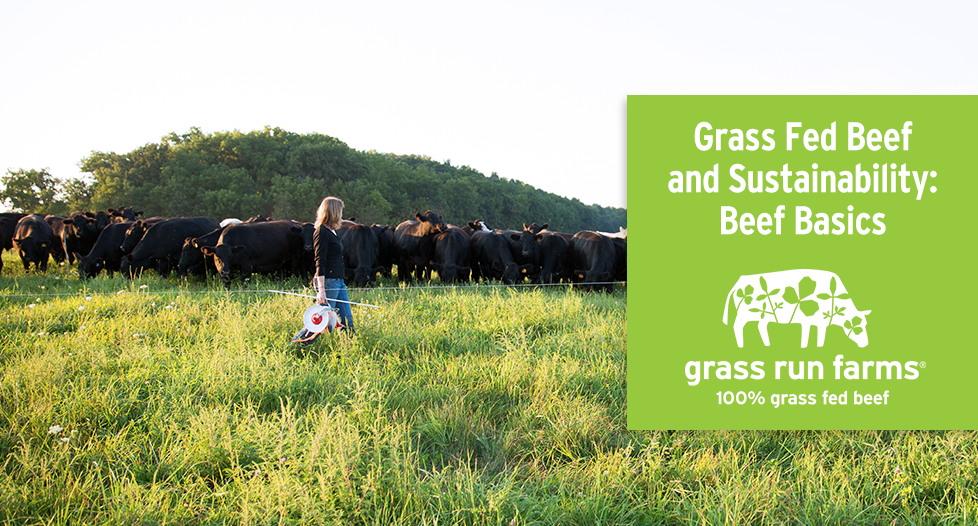July 20, 2020
Written by Neva Cochran, MS, RDN, LD.
You might say that beef is in my genes. My mom was in the fourth generation of a Central Texas farming/ranching family that included beef production. And beef was frequently on my plate growing up. Saturday dinners rotated between grilled steak and hamburgers, Sunday noon meals were either rib roast or pot roast and weeknights featured beef in a variety of ways: spaghetti with meat sauce, lasagna, beef stroganoff, Swiss steak, chicken fried steak, meatloaf, soup, stew or hot roast beef sandwiches made with Sunday’s leftover roast. In addition, our beef meals always had a salad, vegetable and starch like potato, rice or pasta with a glass of milk. My mom was making MyPlate meals before MyPlate was a thing!
Nutrition Star
My love affair with beef has continued throughout my adult life. Not only is it incredibly delicious and a versatile ingredient in a variety of dishes and meals, it is nutrient-rich. Beef delivers high quality protein along with healthy doses of 9 vitamins and minerals including iron, zinc, selenium, choline, phosphorus and four B-vitamins. A 3-ounce cooked portion of lean beef boasts 50% of the day’s recommended intake for protein, 41% for vitamin B12, 24% for vitamin B6, 39% for zinc, 14% for iron and 13% for choline. So let’s take a closer look at the role these nutrients play in nutrition and health.
- Protein is required for building and maintaining all the body’s protein tissues like the heart, lungs, kidneys, bones, blood and nerve cells, skin, hair and hormones. Protein in meals also promotes “satiety,” or feeling fuller longer after a meal so you are less likely to be hungry and overeat.
- Zinc, a mineral essential for maintaining the immune system, also aids in healing wounds and supporting the senses of taste and smell.
- Iron is a mineral necessary for making hemoglobin, a protein in red blood cells, which helps prevents anemia. It is also part of other body proteins, hormones and enzymes.
- Vitamin B12 is important for healthy blood and nerve cells and may have a role in reducing dementia risk as we age.
- High levels of homocysteine are linked to heart disease. Vitamins B6 and B12 help lower blood levels of homocysteine.
- Inflammation can also increase heart disease risk. Choline and betaine in beef are involved in reducing inflammation.
Heart Hero
Beef as part of a balanced, nutritious meal plan bestows a number of health benefits. While beef was restricted in a heart-healthy diet for many years, more recent research reveals that beef can actually promote heart health.
- Several studies demonstrate that lean beef in a balanced, low saturated fat diet is just as effective as chicken and fish in lowering total cholesterol and LDL “bad” cholesterol. In fact, a recent review and analysis of 24 studies that compared eating 3.5 or more servings vs. 3.5 or fewer servings of red meat/week found that it did not affect heart disease risk factors like blood cholesterol or blood pressure.
- More good news comes from the BOLD (Beef in an Optimal Lean Diet) study: participants’ LDL “bad” cholesterol dropped 10% when 3 – 4 ounces of cooked, lean beef replaced white meat in a heart-healthy DASH (Dietary Approaches to Stop Hypertension) meal plan. The DASH diet is rich in vegetables, fruits, whole grains, nuts and beans but traditionally used white meats and plant protein foods instead of red meat.
- The Mediterranean Diet is another popular heart-healthy plan with plenty of grains, fruits and vegetables but low in red meat. A 2018 10-week study compared a Mediterranean plan with 2.5 ounces of red meat/day to one with 1 ounce/day of red meat + 1.5 ounces/day of poultry or other non-red meat protein foods. Total cholesterol was lowered by both diets but more for the higher red meat intake. In addition, the LDL “bad” cholesterol went down when they ate more red meat but did not change with the higher white meat plan.
- Finally, a hot-off-the-press 2020 study compared overweight participants at risk for Type 2 diabetes who followed two low saturated fat diets based on the USDA Healthy Eating Pattern. One limited lean, unprocessed beef to 1.4 ounces/day with 50% of calories from carbohydrate. The other plan consisted of 5.4 additional ounces of lean, unprocessed beef/day replacing an equal number of refined starchy carbohydrate calories so carbohydrate was only 44% of calories. At the end of the study, substituting lean beef for carbohydrate did not negatively affect the participants’ heart health.
Perfect Partner
Beef is the perfect “partner” to boost intake of foods folks often need to eat more of. Pairing lean beef with vegetables, fruits and whole grains adds antioxidant nutrients and fiber that protect against heart disease. Combining beef chunks, fruit and vegetables in a stir-fry with a tangy sauce served on brown rice creates a delicious, nutritious meal. Or how about ground beef burger loaded with crunchy veggies? For a Mediterranean twist, have a lean beef wrap in a whole-wheat tortilla with hummus and salad greens. And there’s always my childhood favorite, pot roast, cooked slowly with potatoes, carrots and onions.
Beef servings should be about 3- – 4 ounces cooked — the size of a deck of cards or palm of your hand — to supply all its great nutrients but not overdo calories and fat. Another way to reduce calories and fat is by choosing lean cuts. The good news is there are 38 cuts of beef that meet the government’s guidelines for “lean.” And nearly half the fat in beef – 43% – is the heart-healthy monounsaturated kind. So it’s easy to fit beef into meals that help your heart.
Delivered to your Door
Enjoying delicious beef has never been easier because you can have Grass Run Farms 100% grass fed beef delivered right to your door through Market House. Products available include: rib eye steak, New York strip steak, top sirloin, ground beef, ground beef patties, tenderloin filet, flat iron steak, chuck roast and stew meat.
Grass Run Farms is a collaboration of family farmers in the Midwest focused on careful production and cattle that receive a forage diet their entire lives. Grass Run Farms 100% grass fed and finished beef comes from cattle born, pasture raised† and harvested in the USA.
About the Author
This blog was written by Neva Cochran, MS, RDN, LD. Neva is an award-winning registered dietitian nutritionist with over 30 years of experience. As a registered dietitian nutritionist, she promotes science-based nutrition messages to help people enjoy eating, not fear food.
†Cattle must have continuous access to pasture during grazing season









